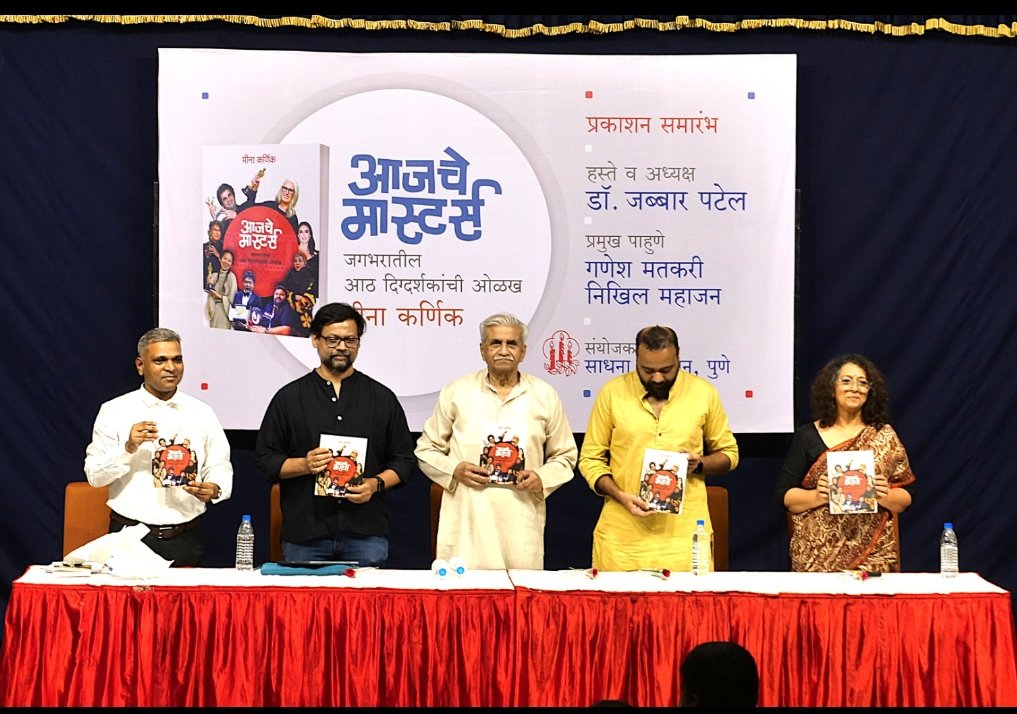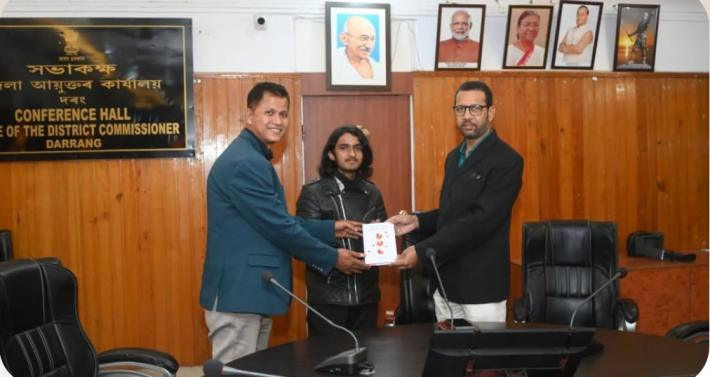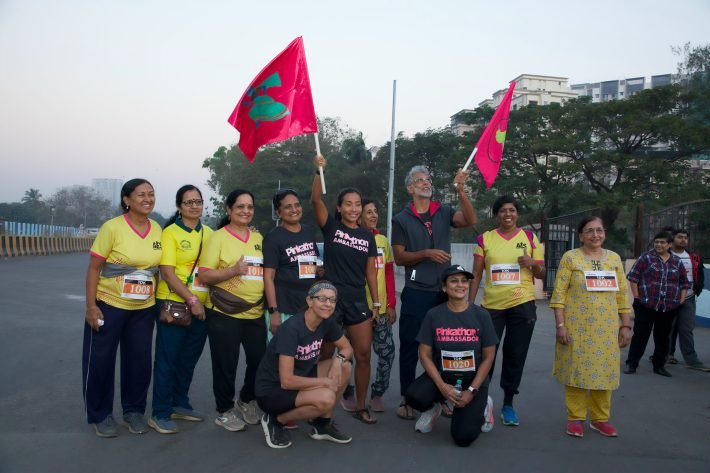Welcome to TheGlitz Lit Lounge, where we flip through books and pages that matter… spotlighting books, brilliant authors, and meaningful launches that celebrate intellect, creativity, and cultural relevance.
This week, we shine a literary spotlight on veteran journalist Meena Karnik, whose newly released book Aajache Masters (Today’s Masters) is a cinematic tribute wrapped in eloquence and insight. The launch took place on 10th May 2025 at an elegant function in Pune, where the book was officially released by none other than legendary filmmaker Dr. Jabbar Patel, who also authored the foreword.
Joining the launch were film critic Ganesh Matkari and noted director Nikhil Mahajan, the creative mind behind thought-provoking films like Godavari, Pune 52, and the upcoming Raosaheb. The evening was filled with riveting discussions on cinema, storytelling, and the evolving global narrative in film… echoing the very spirit of Karnik’s book.
Aajache Masters: A Global Roll Call of Directorial Excellence
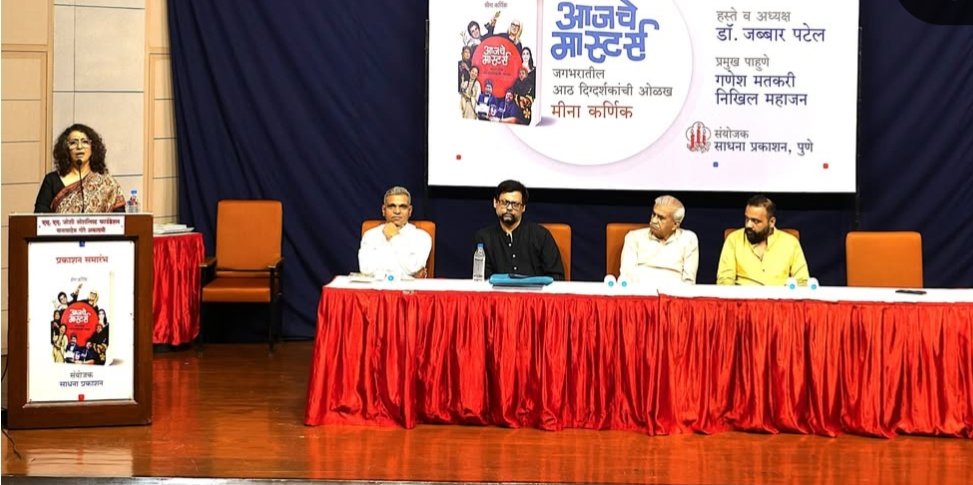
Published by Sadhana Publications, the book is a meticulously curated 176-page chronicle that took shape over five years of deep research and passionate writing. Priced at ₹350, it offers incredible value for cinephiles and culture connoisseurs alike.
What makes Aajache Masters a standout work is its universal vision. Karnik spotlights eight contemporary filmmakers from around the world whose works have redefined modern cinema through unique cultural lenses and compelling storytelling:
- Jafar Panahi (Iran) – Known for courageous, quietly rebellious cinema that defies censorship.
- Jane Campion (New Zealand) – A powerful feminist voice behind classics like The Piano and The Power of the Dog.
- Hirokazu Koreeda (Japan) – Master of subtle, family-driven narratives like Shoplifters.
- Chloé Zhao (China/US) – The Oscar-winning director who brings poetry to realism in films like Nomadland.
- Bong Joon Ho (South Korea) – The genre-bending genius behind Parasite and Memories of Murder.
- Nadine Labaki (Lebanon) – A socially conscious filmmaker with a bold storytelling style (Capernaum).
- Lijo Jose Pellissery (India) – A maverick Malayalam filmmaker known for pushing cinematic boundaries (Jallikattu, Ee.Ma.Yau).
- Mania Akbari (Iran/UK) – A radical voice in feminist and experimental cinema.
Each chapter is more than just a profile… it’s an exploration of the socio-political context, emotional core, and cinematic language that defines each director’s oeuvre. Karnik writes not just as a journalist, but as a passionate observer of the times… blending critique, admiration, and layered storytelling with journalistic finesse.
Why Aajache Masters Belongs in TheGlitz Lit Lounge
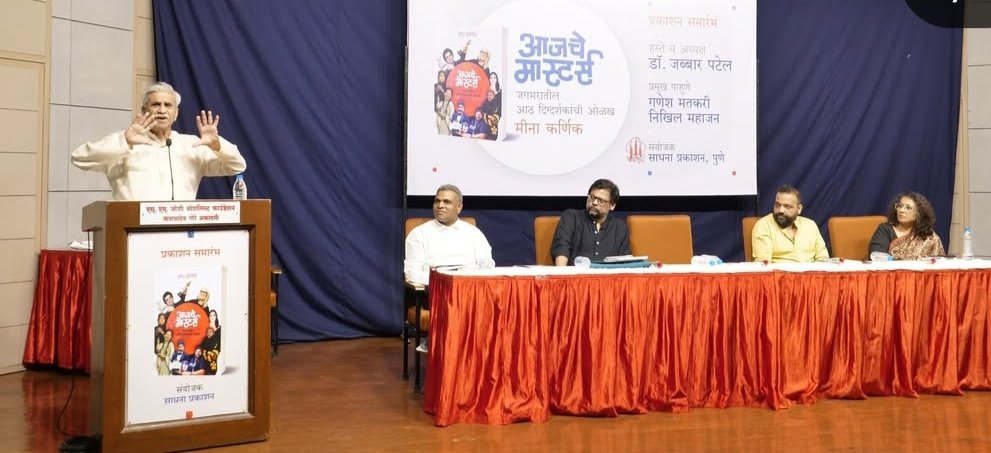
At TheGlitz, we take Literature and literary masterpieces seriously. We don’t just flip pages… we uncover hidden gems in print. We believe in championing creators who change the game… those rare visionaries who don’t just tell stories but reshape the way we see the world. Meena Karnik’s Aajache Masters belongs to that rare breed of works that dares to decode genius.
Aajache Masters is a cinematic pilgrimage — a carefully charted journey through the lens of eight path-breaking directors from across the globe. From the politically potent silence of Jafar Panahi, to the visceral storytelling of Bong Joon Ho, and the poetic resilience of Chloé Zhao, every chapter is a passport into a unique world of thought, struggle, and innovation.
What Karnik does with finesse is unpack the substance — not just the screenplays, but the soul behind each filmmaker’s craft. The book appeals to curious minds who crave more than mainstream gloss. It’s for thinkers, dreamers, rebels… for those who believe cinema isn’t just entertainment, but a cultural force that can challenge norms, comfort the marginalized, and revolutionize perspectives.
So, if you’re someone who watches films with your heart and your head, Aajache Masters is your next essential read. It’s not just a tribute to cinema… it’s a celebration of courage, creativity, and the undeniable power of storytelling. Whether you’re a budding filmmaker, a cinema scholar, or simply someone who binge-watches with curiosity, this book deserves a space on your coffee table and in your conversations.
What we now really want is a sequel from Meena Karnik with many more well-researched chapters on more Indian filmmakers. Are you listening, Meena Karnik?
